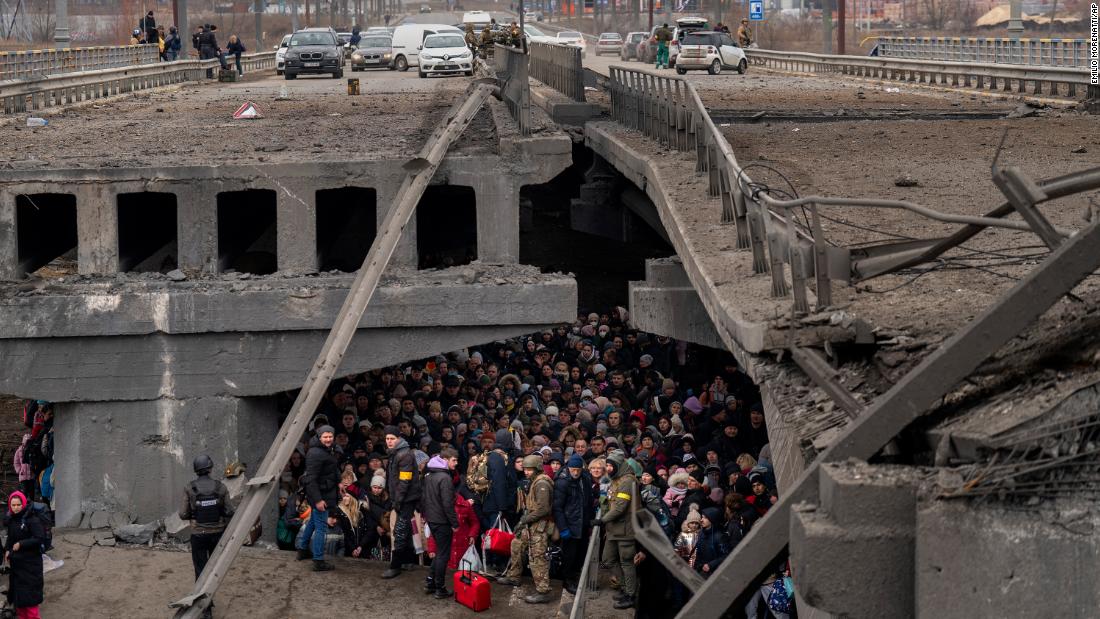‘Justice Denied’: A Sex Trafficking Survivor Tells Her Story
When Jennifer Lowery-Keith reported to police threats by her trafficker, she was arrested. That’s one example of how victims of trafficking are criminalized by a system that is supposed to protect them, she writes.

While legislators and judicial officials have been vocal in their commitment to combat trafficking in persons, many well-intentioned policies fail to translate into practice.
For example, U.S. Attorney General Merrick B. Garland last month announced the Justice Department’s new National Strategy to Combat Human Trafficking, which includes a provision to develop and implement new victim-screening protocols to identify potential human trafficking victims during law enforcement operations, and encourage victims to share important information.

Jennifer Lowery-Keith
However, he doesn’t adequately explain how these will be developed, tested, or enforced.
While the AG’s new strategy sounds good, we fear it may not have practical benefits for victims, considering that extant screening protocols are limited in efficacy.
Examples of where this type of general strategy has fallen short in the past are easy to find.
A trafficking survivor recently filed a lawsuit against Fairfax County Police in Virginia, claiming that from 2010 to 2015 the police allowed sex traffickers to operate in exchange for free sexual services in a coverup that reached all the way to the then-chief of police.
Her allegations are partially corroborated by former detective Bill Woolf, who was assigned to work on the Northern Virginia Human Trafficking Task Force at that time.
There plenty of other examples of the impunity enjoyed by traffickers and poor treatment from law enforcement that can be experienced by victims of trafficking.
On Aug. 21, 2015, one of us (Mehlman-Orozco) was driving in front of Springfield Mall in Fairfax County, Virginia, when she saw a black sedan, with out-of-state license plates, pull over to the side of the road.
The driver exited the vehicle, walked to the passenger side, and removed a blonde woman from the passenger seat and began throwing luggage at her, before driving off.
Mehlman-Orozco pulled over to help the woman, who she later learned was a victim of sex trafficking—Jennifer Lowery-Keith.
[This account was earlier described in an article in The Hill.]
Lowery-Keith, the co-author of this essay, was traveling to Virginia from Connecticut with her trafficker, who was out of jail on pretrial release for a malicious wounding charge against one of his other victims.
She had been sex-trafficked on and off for nearly 15 years, and at one time was even shot at point-blank range in the leg, requiring emergency surgery and vascular transfusion.

Kimberly Mehlman-Orozco
After learning that Lowery-Keith was a trafficking victim, Mehlman-Orozco reported this incident to Fairfax County Police Detective Bill Woolf, whom she knew from anti-trafficking conferences.
Det. Woolf helped get Jennifer into residential treatment and collected information about her trafficker, who even had a forthcoming court date for the malicious wounding case against another one of his sex trafficking victims.
However, that charge against the trafficker was null prosecuted because the victim in that case went missing and no charges were ever levied against the trafficker for how he exploited her and physically abused her.
Neither Mehlman-Orozco nor Lowery-Keith were told why no charges were filed against the sex trafficker, but the allegations that are now pending civil court against Fairfax County Police may provide a potential explanation.
Lowery-Keith is rebuilding her life and has even started writing about her experiences as a human trafficking survivor. But she doesn’t feel that justice was served.
When she mustered the courage to call the police on her trafficker, after he threatened to kill her children, she was arrested, not him.
And although Jennifer didn’t personally witness or experience commercial sex exchanges with law enforcement, she certainly heard stories of these exchanges being commonplace across multiple states.
‘Disheartening Reality’
Unfortunately, the pending civil case in Fairfax County may be exposing a disheartening reality: Victims of trafficking often continue to be denied justice, erroneously criminalized, and/or sexually harassed by criminal justice officials who are meant to protect them.
Allegations against law enforcement for sexual abuse and/or exploitation of sex trafficking victims and sex workers can be found across the country; for example, in Maryland, New York, Kentucky, California, Nevada, Connecticut, and Georgia.
Perhaps this is one of the reasons why trafficking crimes are significantly under-reported—although non-profits estimate hundreds of thousands of trafficking victims in the United States, according to the FBI’s Uniform Crime Report there were only 562 arrests for sex trafficking and 146 arrests for labor trafficking in 2019.
If the non-profit estimates are true, this means that fewer than 1 percent of traffickers are arrested for their crimes.
Regardless of whether Fairfax County is found liable for the allegations contained in the pending lawsuit, this case should draw attention to the treatment of trafficking victims by the criminal justice system across the county.
Juveniles should not be arrested for prostitution, law enforcement officials should not be accused of receiving commercial sex services in exchange for impunity, and traffickers should not face minimal punishment for modern slavery.
The strategy announced by AG Garland is a step along the way, but it’s nowhere near sufficient.
It’s time for a national strategy that includes specific actions to significantly increase exploitation identification, as well as protect victims from erroneous criminalization and revictimization.
No victim of trafficking should ever fear reporting their exploitation to police, but the stories of survivors remind us that this is the lived reality for many.
Jennifer Lowery-Keith is a sex trafficking survivor, author, anti-trafficking advocate, and public speaker on human trafficking. Kimberly Mehlman-Orozco holds a Ph.D. in Criminology, Law and Society and serves a human trafficking expert witness in criminal and civil court. Her first book Hidden in Plain Sight: America’s Slaves of the New Millennium is used to train law enforcement on human trafficking investigations.

 Landwebs
Landwebs 























